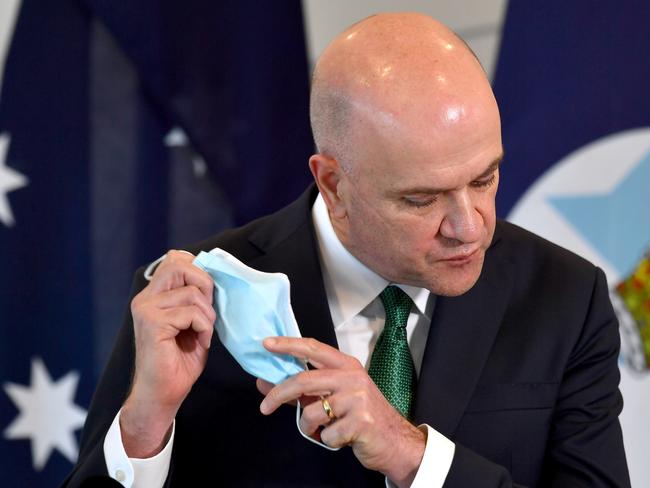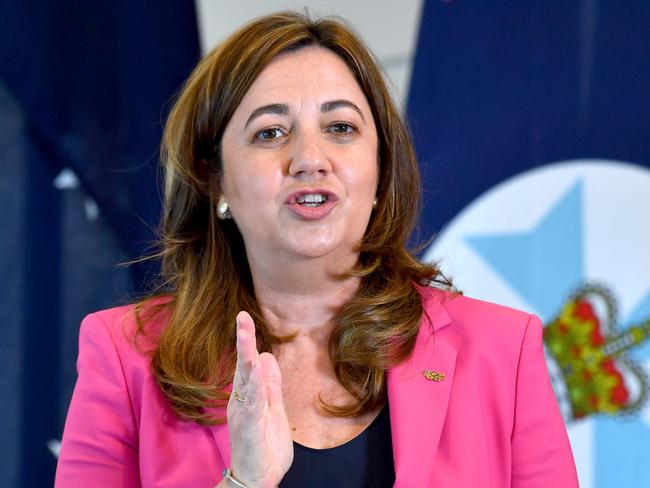Premier appeals to Queenslanders for calm as cases skyrocket
Several major Brisbane hospitals including a cancer ward at the Queensland Children’s Hospital have been exposed to Covid, with health workers demanding an urgent meeting with the government.
QLD Coronavirus News
Don't miss out on the headlines from QLD Coronavirus News. Followed categories will be added to My News.
Health workers are demanding an urgent meeting with the government to discuss the response to a surge in Covid-19 cases as several major hospitals have been added to the list of exposure sites.
On Wednesday, the Logan Hospital Emergency Department’s Covid section was added to the exposure site list, joining other health services including the Prince Charles Hospital Emergency Department and the Royal Women’s and Children’s Hospital.
The Queensland Children’s Hospital is also responding to COVID cases within its workforce, with contact tracing is under way in wards 5C and 5D Monday and Wednesday. Those wards are used by children on day visits to have chemotherapy and checkups.
Premier Annastacia Palaszczuk revealed Queensland recorded 186 new cases on Wednesday – the largest increase of any day of the pandemic – as the state hit its 90 per cent first vaccine dose target.
The number of active cases has increased to 447, however just one woman – who has pre-existing medical conditions – remains in intensive care as a precaution.

On Thursday, unions representing health workers will call for a co-ordinated approach to manage the expected increase in pressure on the public health system.
It comes after a state-wide union questionnaire revealed 72 per cent of health workers were not confident their facility would cope if a Covid outbreak occurred in their region.

Chief health officer John Gerrard urged Queenslanders to remain vigilant and get vaccinated but said early indications showed the “vaccines are working effectively”.
He acknowledged while case numbers were high, the number of required hospitalisations was low.
“It is a time of anxiety for all of us because we have to work with limited information and make decisions with limited information but the more we learn, the more we are reassured that the vaccines are effective in eliminating severe disease and that’s really what we’re talking about,” he said.
“Most of the patients that I’ve seen with Omicron who have been vaccinated have had trivial symptoms.”
Mild symptoms could include fever, cough, shortness of breath, headache or runny nose.
Ms Palaszczuk said she would be “in a better position towards the end of the week” to predict when the 90 per cent fully vaccinated milestone will be reached. Masks are now required in cinemas and for hospitality staff as part of extra measures Ms Palaszczuk said were “not very onerous”.




